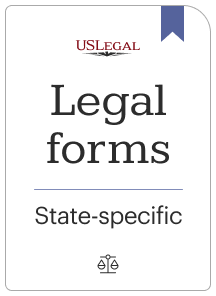

This form is a release of liability. The releasor forever discharges and acquits the releasee of all damages and injuries resulting from the event described in the document. A Texas Release of Liability — General is a legal document that helps protect individuals or organizations from legal claims or liabilities that may arise from certain activities, events, or relationships. By signing this document, the releaser (also known as the participant or party giving up rights) voluntarily assumes all risks associated with the activity or event, thereby waiving their right to sue for any injuries, damages, or losses incurred. This general release form is particularly applicable in Texas and is widely used in various contexts, including but not limited to: 1. Sports and Recreational Activities: Whether it's a game of flag football, a day at a theme park, hiking, or participating in extreme sports, recreational organizers and facilities often require participants to sign a Release of Liability — General form. This protects them from potential legal actions resulting from injuries or accidents that may occur during these activities. 2. Fitness and Wellness Centers: Gyms, yoga studios, and fitness centers often use this release form to safeguard themselves from any liability arising from the use of their facilities, equipment, or participation in fitness classes, personal training sessions, or other wellness programs. 3. Volunteer Work: Non-profit organizations or community groups often require volunteers to sign a Release of Liability — General to protect themselves from any potential claims for damages or injuries incurred during volunteer activities, such as food drives, construction projects, or charity events. 4. Rental or Lease Agreements: Property owners or lessors may utilize a Release of Liability — General in lease or rental agreements to shift responsibility to the lessee or tenant, limiting their liability for accidents, injuries, or damages occurring on the premises during the lease or rental term. 5. Professional Services: Service providers, such as contractors, consultants, or event planners, may require clients to sign a Release of Liability — General to limit their liability for any potential claims arising from the performance of their services or in conjunction with the event or project. It's important to note that a Texas Release of Liability — General may vary slightly depending on the specific circumstances or industry involved. For example, there may be separate forms tailored specifically for sporting events, medical or health-related services, or for minors participating in activities. It is crucial for both parties to carefully review and understand the terms of the document before signing, ensuring that the release is comprehensive and covers all relevant aspects of the activities or services being provided.
A Texas Release of Liability — General is a legal document that helps protect individuals or organizations from legal claims or liabilities that may arise from certain activities, events, or relationships. By signing this document, the releaser (also known as the participant or party giving up rights) voluntarily assumes all risks associated with the activity or event, thereby waiving their right to sue for any injuries, damages, or losses incurred. This general release form is particularly applicable in Texas and is widely used in various contexts, including but not limited to: 1. Sports and Recreational Activities: Whether it's a game of flag football, a day at a theme park, hiking, or participating in extreme sports, recreational organizers and facilities often require participants to sign a Release of Liability — General form. This protects them from potential legal actions resulting from injuries or accidents that may occur during these activities. 2. Fitness and Wellness Centers: Gyms, yoga studios, and fitness centers often use this release form to safeguard themselves from any liability arising from the use of their facilities, equipment, or participation in fitness classes, personal training sessions, or other wellness programs. 3. Volunteer Work: Non-profit organizations or community groups often require volunteers to sign a Release of Liability — General to protect themselves from any potential claims for damages or injuries incurred during volunteer activities, such as food drives, construction projects, or charity events. 4. Rental or Lease Agreements: Property owners or lessors may utilize a Release of Liability — General in lease or rental agreements to shift responsibility to the lessee or tenant, limiting their liability for accidents, injuries, or damages occurring on the premises during the lease or rental term. 5. Professional Services: Service providers, such as contractors, consultants, or event planners, may require clients to sign a Release of Liability — General to limit their liability for any potential claims arising from the performance of their services or in conjunction with the event or project. It's important to note that a Texas Release of Liability — General may vary slightly depending on the specific circumstances or industry involved. For example, there may be separate forms tailored specifically for sporting events, medical or health-related services, or for minors participating in activities. It is crucial for both parties to carefully review and understand the terms of the document before signing, ensuring that the release is comprehensive and covers all relevant aspects of the activities or services being provided.